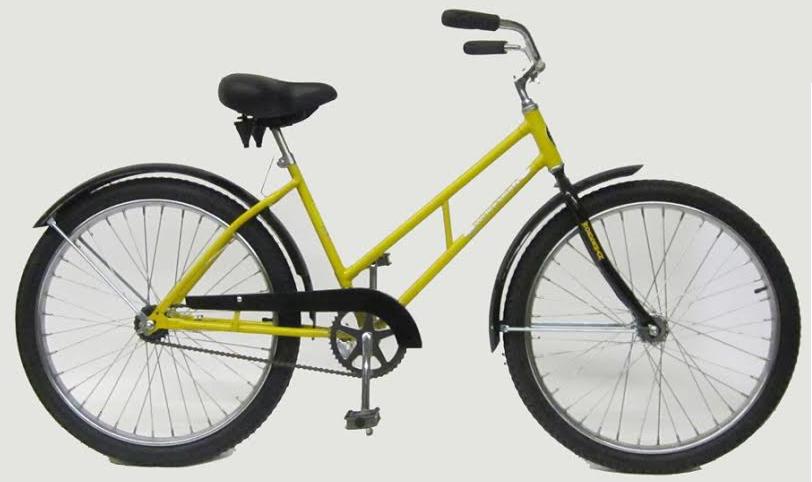The Environmental Case for American Made Bicycles
 In a world increasingly defined by the choices we make—what we eat, how we commute, where we spend our money—buying a bicycle seems like a clear win for sustainability. But there’s a hidden layer to that decision that often goes overlooked: where your bike is made. When it comes to reducing environmental impact, American made bicycles offer a cleaner, smarter, and more responsible alternative to imported bikes.
In a world increasingly defined by the choices we make—what we eat, how we commute, where we spend our money—buying a bicycle seems like a clear win for sustainability. But there’s a hidden layer to that decision that often goes overlooked: where your bike is made. When it comes to reducing environmental impact, American made bicycles offer a cleaner, smarter, and more responsible alternative to imported bikes.
Hidden Carbon in Imported Bikes
At first glance, bicycles appear to be a universally eco-friendly mode of transportation. They don’t burn gas, they reduce traffic congestion, and they promote human-powered transportation. But much of the environmental burden of a bicycle is front-loaded—not in the riding, but in the making.
Most bicycles sold in the U.S. are manufactured overseas, often in large factories in Asia that rely on coal-heavy energy grids and mass-production methods with little regard for environmental controls. After manufacturing, these bikes must then be packed, shipped across oceans, trucked across states, and delivered to your local shop or doorstep.
That adds up. The carbon footprint of shipping a container of bikes from Taiwan or China to the U.S. can be dozens of tons of CO₂, especially when factoring in warehousing, inland transportation, and packaging. A single imported bike could carry an embedded carbon footprint before it ever sees a road—nullifying the environmental benefit it promises to provide.
Local Manufacturing = Smaller Footprint
That’s where American made bicycles stand apart. Domestic production significantly reduces the carbon loop.
- Shorter transportation routes mean fewer emissions.
- Local sourcing of materials (especially steel or aluminum tubing) cuts down on both cost and environmental harm.
- More regulated manufacturing in the U.S. ensures cleaner factory practices and better emissions controls.
- Built to order or in small batches, many American bikes avoid the waste of mass overproduction.
Even when American builders import raw materials, such as tubing or components, they typically do so in smaller volumes and with much greater control over their inventory. That reduces waste and cuts emissions associated with overstocking and disposal.
Environmental Responsibility Starts at the Factory
When you buy American made bicycles, you’re often supporting companies that integrate environmental responsibility at every step.
- Solar-powered facilities that offset their energy use
- Recycled packaging and shipping materials
- Minimal or no plastic wrap
- Water-based paint systems and powder coating that reduce chemical waste
- Local sourcing for hardware, decals, accessories, and racks
Some companies even partner with nonprofit bike co-ops or youth training programs, ensuring that every bike built has a ripple effect beyond just one owner. That means your purchase can contribute to both environmental and social sustainability—something offshore mass production rarely offers.
It’s worth noting that local economic health is tied to environmental health. When you invest in U.S.-made goods, you support:
- Local jobs
- Local shops
- Local repair networks
- And a self-reinforcing demand for sustainable infrastructure
This reduces reliance on overseas labor practices that may include unsafe conditions and lax environmental oversight. It also allows riders to vote with their wallets, encouraging brands that prioritize green practices to continue growing.
In short, a bike built and bought here stays here, serves here, and sustains here.
Made for the Long Haul
Most people don’t realize this, but the longer you keep a bicycle, the smaller its lifetime environmental cost. If you ride a bike for 3–5 years before replacing it, the embedded carbon per mile is drastically lower than if you replace your bike every year.
American made bicycles are often designed with this exact principle in mind. Many are modular, allowing for component upgrades instead of full replacements. Some even allow conversion between road and gravel styles or commuter to cargo configurations, depending on your needs. That flexibility means fewer new purchases—and more miles from the bike you already have.
American made bicycles are also easier to maintain and rebuild, which keeps them on the road longer and out of landfills. When something breaks on a mass-produced import, the parts may be proprietary or difficult to find. A cracked frame from an overseas brand might be unrepairable or not worth the shipping cost to fix. But with domestically produced bikes, many parts are standardized or sourced from well-known U.S. suppliers. And if the frame needs attention, there’s often a real human at the other end of the phone—someone who can weld, braze, or replace what’s needed.
More importantly, many American manufacturers offer lifetime warranties, rebuild programs, or trade-in credit toward new models. These practices discourage throwaway culture and keep bikes circulating in the community rather than ending up in scrap yards.
A Cultural Shift Toward Sustainability
The demand for American made bikes is part of a broader cultural shift toward sustainability, durability, and localism. People are no longer satisfied with fast, cheap, and replaceable. They want to know where their products come from, how they’re made, and what they support. In this sense, choosing an American made bicycle isn’t just about the product—it’s about the values behind it.
By choosing domestic over disposable, riders are aligning with a vision of the future that’s cleaner, smarter, and far more grounded.
American Made Bicycles - The Eco-Friendly Choice for Riders
Here at Worksman Cycles, our classic Cruiser bicycles have been a go-to choice for U.S. riders for decades. They’re fully customizable to ensure each customer gets the best ride for their needs. Manufactured in our South Carolina factory, the Cruiser and other bikes are the perfect choice for those looking for a sustainable exercise option.
Bicycles already represent one of the most sustainable forms of personal transportation—but where they’re made matters more than most people realize. Choosing American made bicycles reduces shipping emissions, supports cleaner production processes, keeps bikes on the road longer, and encourages a culture of repair over replacement.
It’s not just a purchase. It’s a quiet but powerful act of environmental responsibility. One that turns every ride into a small stand for a cleaner world.







